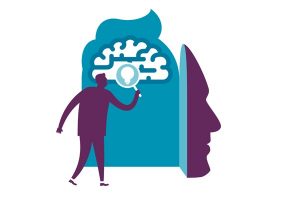
Understanding traumatic brain injury symptoms can help family members better care for loved ones who have them.
The brain is arguably the most important, most complicated organ in your body. It is in charge of absolutely everything. It works behind the scenes, keeping us alive, and in the foreground as the home of our awareness. This is why, not surprisingly, when someone experiences a traumatic brain injury, there is so much concern.
At Advanced Home Health Care, we believe that understanding the possible traumatic brain injury symptoms in relation to the area in the brain where the damage occurred can help families better understand and make more knowledgeable decisions about their loved one’s care.
- Brain Stem: The brain stem regulates the basic mechanism of life, including heart rate, respiration, digestion and blood pressure. It is the home of the startle response and reflex emotions, wake and sleep cycles, and our ability to sneeze, cough, vomit, and swallow. Brain stem damage can lead to issues with all of these basic mechanisms, including impacting speech, due to a decreased capacity for breathing.
- Temporal Lobe: The temporal lobe is the home to our language comprehension, memory, hearing, learning, and sequencing. It lets us recognize faces and produces emotions. The effects of a temporal lobe injury can include problems with key functions as well as changes in sexual behavior, persistent talking (especially with right lobe damage) and increased aggression.
- Occipital Lobe: The occipital lobe is the home of sight. The results of an occipital lobe injury might include vision problems, such as blurred vision or blind spots, hallucinations, visual illusions, the inability to recognize the movement of an object, or problems with reading and writing.
- Frontal Lobe: The frontal lobe is home to an individual’s personality, intelligence, and feelings. It is the region of the brain that manages concentration, makes judgments, and problem-solves. It also controls body movement, including writing and speech. The effects of a frontal lobe injury can include changes and/or difficulty with the core functions controlled by the frontal lobe in addition to more subtle manifestations of the core functionality, such as a lack of inhibition, an impaired sense of smell, vision loss, persistence of a single thought, and mood swings.
- Cerebellum: The cerebellum manages movement, balance and coordination. A cerebellum injury may cause an individual to lose the ability to do things that require coordination, such as walking, talking, or reaching out to grab something. It can also cause tremors, dizziness and/or slurred speech.
- Parietal Lobe: The parietal lobe is home to our comprehension of language, our sense of touch, our spatial awareness, visual perceptions, and our sense of time. When this region of the brain is injured, people might encounter problems with reading, the inability to draw or name items, difficulty distinguishing left from right, difficulty with math, and an unawareness of or neglect of certain body parts. They will also often have difficulty with eye-hand coordination.
The brain, although it is made up of parts, does function as a whole. Problems with behaviors or functions can cascade, as can accomplishments gained through rehabilitation.
If you have a loved one with a traumatic brain injury and need help with care due to the behavioral or physiological effects of the person’s trauma, Advanced Home Health Care’ in-home care services can help.
Contact our in-home caregiving team to schedule your free care consultation at 800.791.7785 to learn more about our services in Mt. Pleasant, Burlington, Keokuk, and the surrounding areas.

